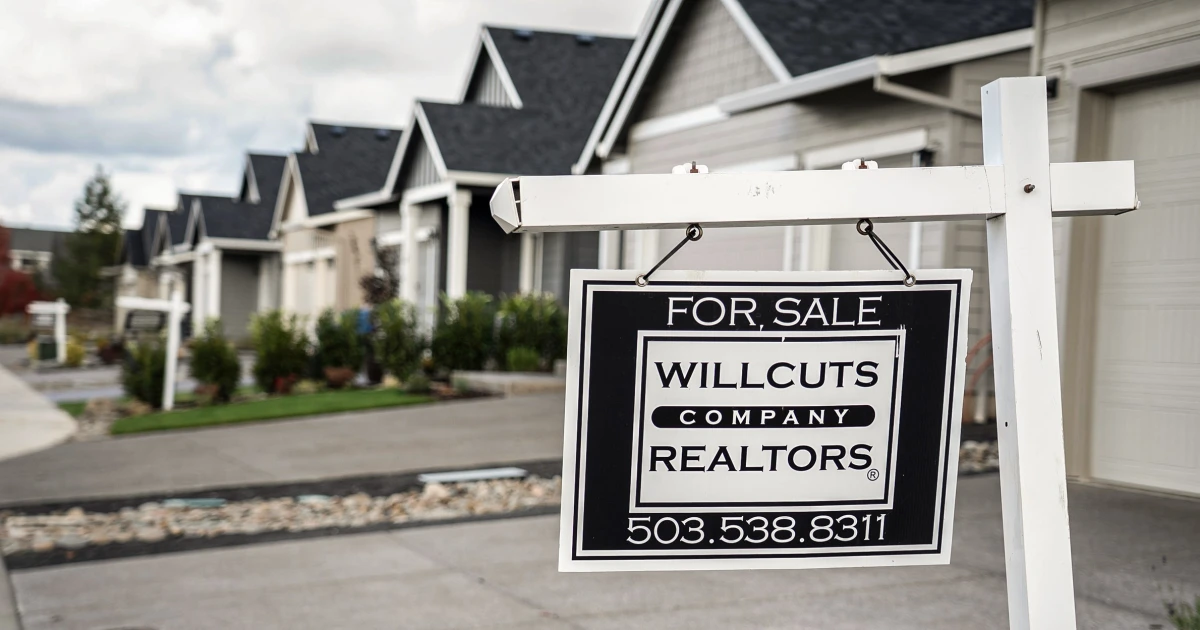Copyright NBC News

Dorienne Smith recently bought her first home, a newly built townhouse in a development outside Columbus, Ohio. It wasn’t easy. Recent rent hikes pushed her to finally decide to own, kicking off a two-year search. She struggled to find a home in her $400,000 price range that didn’t require a lot of repairs and that was in an area she felt comfortable. At 40 years old, Smith only recently felt stable enough to finally buy a home. It took her getting a new job in human resources — plus taking out a loan against her 401(k) — before she felt she could afford to buy. “It’s harder for people, especially those younger than me, to maintain jobs that are going to get six figures or higher, which is really what you need in order to buy a house these days,” she said. Americans are waiting longer than ever to get into their first home. Many of them are held back by high interest rates, rising home prices and salaries that are barely keeping up with the cost of living. The median age for first-time homebuyers hit 40, according to a report from the National Association of Realtors. That's up from 38 in the prior year, and it's the highest since the group began keeping records in 1981. First-time buyers also accounted for 21% of all buyers, which the NAR said is a "historic low." Home affordability has been a source of pain for years, according to the NBC News Home Buyer Index, which measures the difficulty of buying a home. Policymakers have struggled to find solutions. President Donald Trump recently floated the idea of a 50-year mortgage as one way to bring down monthly payments of homebuyers. But critics have pushed back, arguing that 50-year mortgages, compared to standard 30-year mortgages, would do little to address home prices themselves, while leaving buyers in debt longer and spending more on loan interest. Rising costs of everything from rent and child care make it difficult for would-be buyers to save up for a home, said Jessica Lautz, vice president of research at the National Association of Realtors. Many younger people are also weighed down by expenses such as student loan debt, credit cards and car payments. “We’re continuing to see home prices grow, and with home price growth, we’re also seeing interest rates at a higher level, as well,” she said. “So, the overall housing affordability is difficult for a buyer to come in.” The median home price was more than $415,000 in September, according to the National Association of Realtors, up 2.3% from last year. Data from the group shows that prices for existing homes have jumped more than 33% nationwide since 2020. High mortgage rates have only added to the problem. The 30-year fixed rate mortgage has fluctuated between 6.60% and 6.80% for much of this year, and though it has fallen to around 6.25% in recent weeks, it’s still far higher than most Americans feel they can afford. “Because of interest rates being high, it’s caused a lot of homebuyers, who are your younger homebuyers, not to be able to afford places, just because the prices have been so high,” said Jeff Lichtenstein, a broker and president of Echo Fine Properties in Palm Beach Gardens, Florida. Younger Americans are struggling to find the stability and savings necessary to buy homes. Many feel that wages have not kept up with costs of living, as stubborn inflation weighs on consumers. It can take some people years before they can save for the down payment or afford the nearly $2,200 per-month that the National Association of Realtors says is now the typical monthly mortgage payment. At the same time, college grads are carrying more student loan debt than ever, and taking longer to pay it off. The Education Data Initiative found that between 2010 and 2023, the average cost of a four-year degree ballooned 36%, and the average federal student loan debt is now more than $39,000, according to data from the Education Department. While Smith said she was fortunate to graduate with less than $20,000 in loans, she knows others who are struggling under the weight of college debt. “One of my friends has still over $60K in student debt,” she said in an email to NBC News. “I know several others who are carrying equally large amounts of student debt as well.” For most Americans, their house isn’t just a place to live — it’s an investment and an important nest egg. In 2022, the average homeowner had a net worth of about $396,000, 38 times that of a person who did not own a home. If newer buyers can’t get that starter home, Lautz cautioned, that could have knock-on effects for them and their children. “That means lower wealth building for themselves, but also the lower chance of having a generational transfer of wealth for their future generations, too,” she said.



